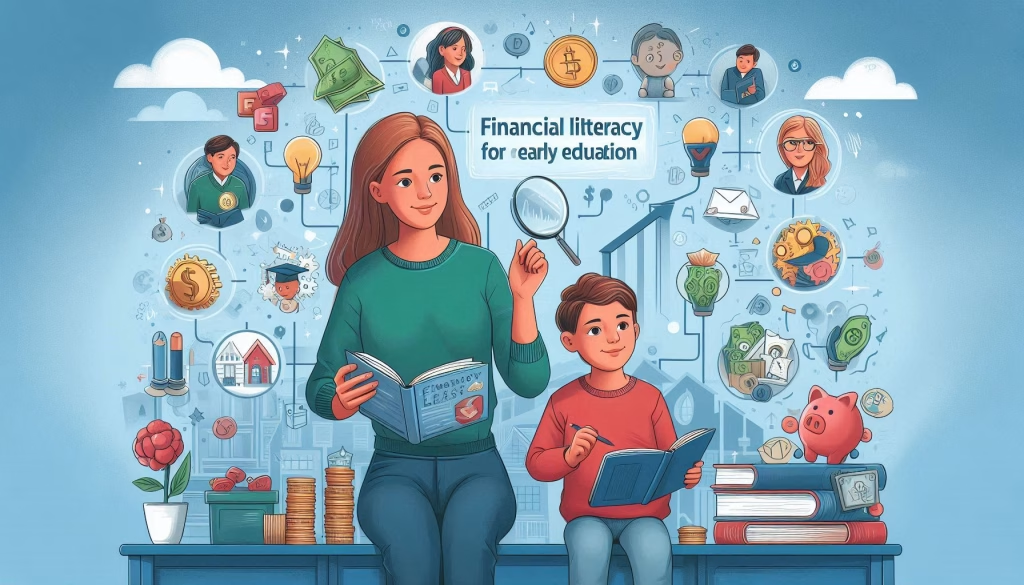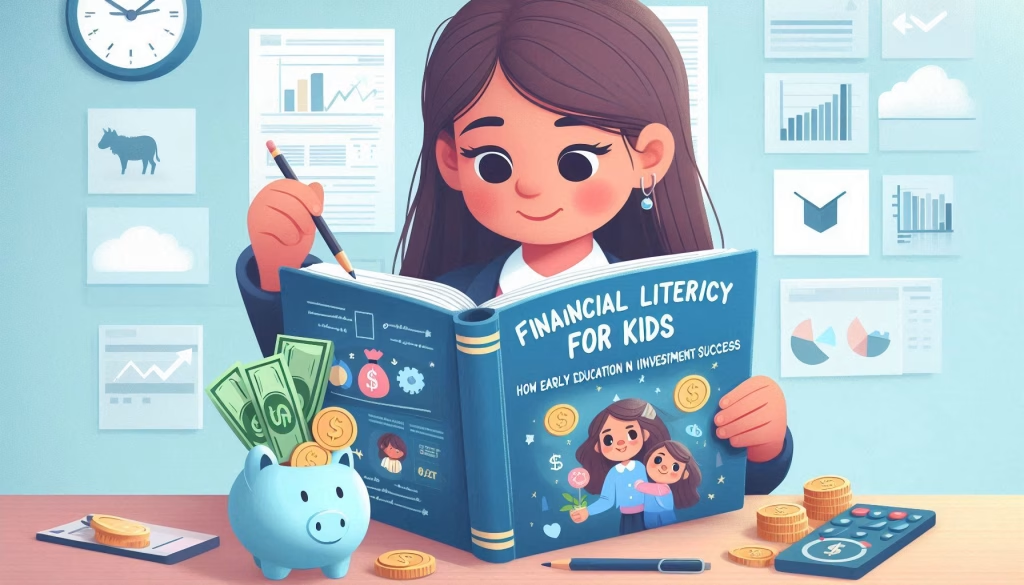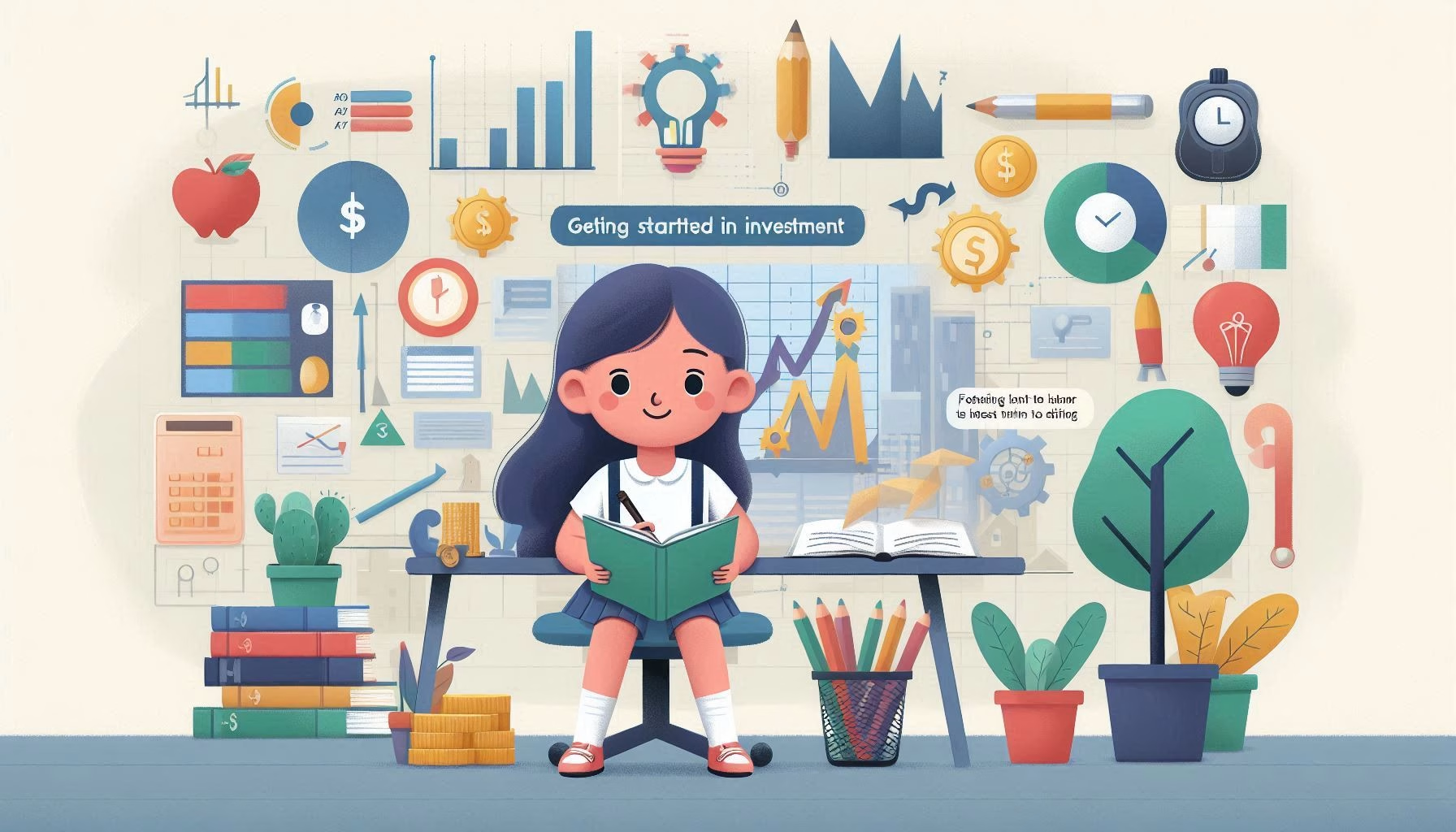Table of Contents
Overview
Financial literacy is now essential not just for entrepreneurs, but for the entire community, including high school students. With the rise in financial literacy, investment opportunities have become more accessible.
High school students can begin investing by using their pocket money as initial capital. They can create a simple budget and track it consistently, such as allocating 50% of their pocket money towards investments.
To raise capital, students can save expenses, such as bringing provisions, using public transportation, or taking advantage of student promos.
After raising capital, understanding the types and benefits of investment instruments suitable for beginners is crucial, and one should tailor them to the available capital. It is recommended for students to open a savings or stock account as an initial step to grow their investment capital. For instance, starting with a deposit account that offers higher interest rates can be beneficial.
With proper preparation, students can invest more securely and work towards financial freedom. Financial experts suggest that students who start investing early have the potential to earn profits.
Begin investing early to improve your financial situation in the future!
Getting Started with Investment Tips for School Children

Embarking on new endeavors can sometimes be perplexing. Nonetheless, school children can begin to invest if they possess the necessary knowledge and are prepared with both the capital and a comprehension of investment instruments.
Here are seven tips that can serve as a guide for school children to start investing. These tips can be applied once you have the capital and are ready to invest consistently.
Investment Tips for School Children No.1
InsuranceWhat.com
Determine the Goals
Before gathering investment capital, it’s essential for school children to set investment goals. Some aim to generate their own income, while others seek to improve their financial management. Early investment education can aid in preparing for future financial planning. The returns from these investments may be utilized to alleviate tuition costs or to bolster savings.
If a schoolchild learns to invest early, this knowledge and experience can be more impactful once they have their own income. Hence, it is crucial to set appropriate goals to enable schoolchildren to invest successfully.
Investment Tips for School Children No.2
InsuranceWhat.com
Learn about Investment Instruments
Understanding the intricacies of investing is crucial before embarking on it, particularly for novices, including schoolchildren. Moreover, investment information has become more accessible through news channels available to schoolchildren interested in investing.
Students are taught about various investment types, associated risksRisk Risk is a loss that occurs to the insured individual or object. Various bad possibilities could happen to someone., and the benefits that align with their needs and capabilities. Numerous programs on YouTube and social media platforms delve into the pros and cons of different investment tools, aiding in the enhancement of schoolchildren’s comprehension. Additionally, several websites provide investment simulations, offering insights into the financial calculations for each investment option to mitigate the riskRisk Risk is a loss that occurs to the insured individual or object. Various bad possibilities could happen to someone. of monetary loss.
Investment Tips for School Children No.3
InsuranceWhat.com
Find a Secure Platform
The availability of investment platforms has simplified the process of investing for school children. However, not every platform is secure and trustworthy, making them susceptible to fraud and data breaches. This can be particularly challenging for school children who are new to investing.
Therefore, it is crucial to verify the legality of investment platforms via the Financial Services Authority website. Additionally, assess their reputation and security by examining the platform’s security protocols, including data encryption and protection against unauthorized access. Given that investment information is readily available today, always ensure the security of your investment platform and seek advice from an expert when needed.
Investment Tips for School Children No.4
InsuranceWhat.com
Keep a Good Eye on It
Investing doesn’t end once you’ve allocated a certain amount of money. The true “art” of investing starts thereafter. Beginners, including school children who invest, should monitor the performance of their investment instruments at least monthly. It’s possible to assess the performance of your selected investment vehicle against pertinent benchmarks via the platform you utilize.
Furthermore, it is crucial to stay informed about the financial market conditions that fluctuate daily. Should they encounter challenges, schoolchildren who invest may seek guidance from experts or review market prediction analyses conducted by professionals.
Investment Tips for School Children No.5
InsuranceWhat.com
Commitment and Consistency
Fundamentally, investing is similar to saving in that both require dedication to reach the desired objectives, such as the financial gains from investing. If initial investment returns are disappointing, there’s no cause for alarm. It’s common for investments to experience “losses,” especially for novices, including school students. Incorporate the dynamics of investing into your daily routine.
Maintaining commitment is crucial, but consistency in investing in school children is equally important. Therefore, it’s essential to set clear targets to maintain focus on the investment. Enhance this with improved financial management to increase the likelihood of achieving your investment objectives.
It’s important to note that investing on behalf of school children requires time and dedication. With an appropriate strategy, these young investors can reach their objectives and establish a foundation for improved financial futures.
Investment Tips for School Children No.6
InsuranceWhat.com
Keep Learning
Beginner school children interested in investing need to learn extensively. Nowadays, investment information is readily accessible and not confined to select groups.
Enhance your investment abilities by enrolling in online courses available to the public. Additionally, attending specialized seminars can broaden your understanding of investment strategies and insights tailored for school children.
While investing is often viewed as a serious and complex matter, it’s beneficial to approach it as an engaging and enjoyable activity. Additionally, joining an investment community for schoolchildren that frequently conducts sharing sessions and seminars is advisable.
Investment Tips for School Children No.7
InsuranceWhat.com
Make Success a Motivation
Often referred to as beginner’s luck, it is indeed a fact that school children who invest for the first time can earn profits. Naturally, this may increase your motivation to continue investing, perhaps by exploring other investment instruments that require a larger capital.
First, assess the performance of your investment to identify the factors that have contributed to its success. Understand what has been effective and what hasn’t in order to refine your future investment strategies.
While these achievements are gratifying, it’s crucial to remain alert to market fluctuations. School children engaging in investments should continue to practice discipline and avoid overconfidence. Follow the investment strategy that aligns with your evaluative findings, persist in your education, and seek advice when necessary to refine your investment approach.
Here are seven tips for schoolchildren interested in investing. If you have sufficient capital, select a suitable investment vehicle and be mindful of the risks involved. Remember to persistently educate yourself and seek out information about market conditions to ensure the success of your investment strategy.

The Conclusion
Investing for School Children: The Sooner, the Better
Investing is not exclusive to specific groups anymore. Even school children, who have a grasp of investment instruments, can invest provided they have sufficient capital.
For beginners, especially schoolchildren, grasping market conditions is crucial in determining the appropriate investment strategy. It’s beneficial to engage in online classes and seminars to enhance your understanding of investing. Wishing you success in your endeavors!
Do you think you have other ideas about Financial Literacy for Kids: How Early Education Can Lead to Investment Success? You can comment and share your thoughts below, or discuss more in the InsuranceWhat Forum. Also, read more articles about GLOBAL INSURANCE or other interesting insurance topic articles only at InsuranceWhat.com.





